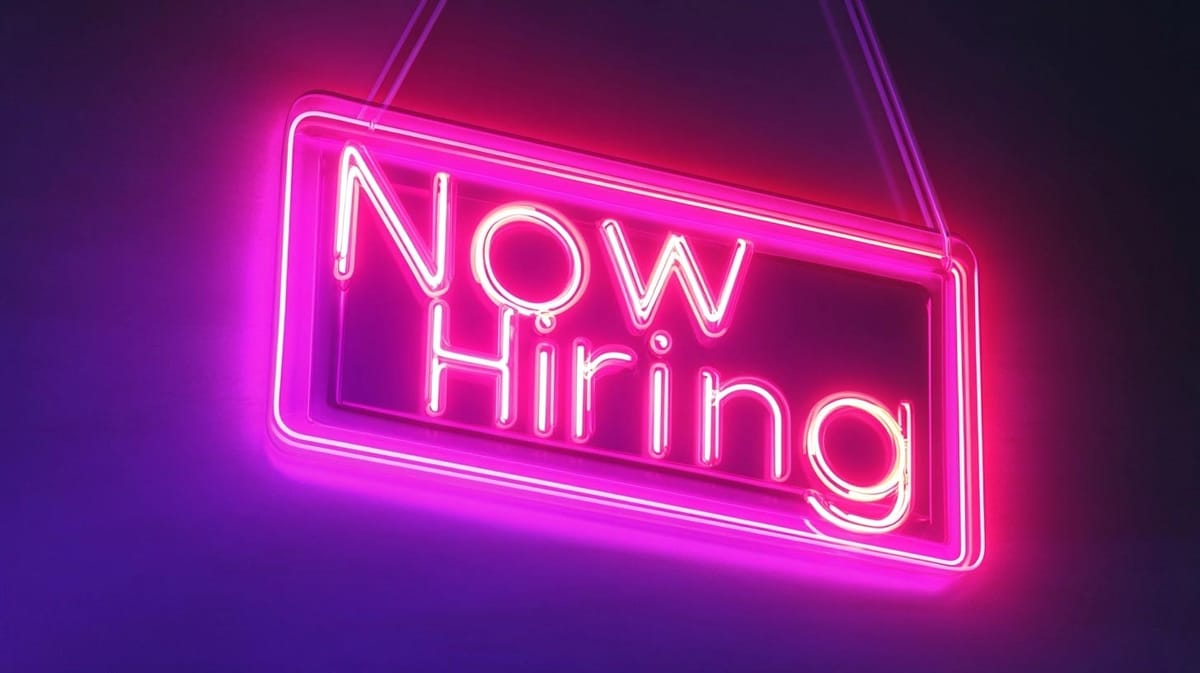AI Isn't Replacing These Marketers
The fastest way to AI adoption isn’t a corporate overhaul—it’s hiring the right mercenary.

The rise of AI in marketing has sparked two competing narratives. One predicts widespread job displacement, as automation takes over tasks once performed by humans. The other paints a future of exponential productivity, where AI supercharges human capability rather than replacing it. For companies navigating this transformation, one solution is emerging as both pragmatic and powerful: freelancers.
Freelancers have long been the go-to resource for companies needing flexibility, speed, and cost efficiency. But in the AI era, their value has shifted from being just an extra set of hands to something more vital: a source of specialized expertise in an industry undergoing rapid reinvention. AI is changing the rules of marketing, but the rules themselves are still being written. Businesses don’t just need manpower; they need agile, AI-literate talent on demand. And that’s where an increasing number of freelancers shine.
The numbers tell a compelling story. After ChatGPT's public debut in 2022, AI-related job postings on Upwork surged by over 1,000% the following year, with searches for AI talent growing 1,500%. Fiverr reported a 3,037% increase in searches for "AI influencer" services, as brands sought freelancers to help them harness AI-generated content, automation, and analytics. This isn’t just about outsourcing routine work—it’s about tapping into a decentralized, on-demand workforce that understands AI tools and can integrate them into marketing strategies faster than traditional hiring models allow.
The reason is simple: AI is evolving at a breakneck pace, and full-time hiring cycles can’t keep up. Companies that attempt large-scale AI transformations find themselves entangled in slow-moving initiatives—training internal teams, restructuring workflows, and struggling to define clear ROI. The promise of AI may be exponential efficiency, but the process of integrating it is anything but.
Freelancers offer a different path. More than just a flexible workforce, they are a rapid deployment mechanism for AI-driven marketing innovation. They allow companies to quickly connect the dots between AI use cases—like building an AI-powered customer service agent or automating content creation—and the specialized talent needed to make those projects a reality. Instead of waiting for organizational change to materialize, businesses can bring in freelancers to test and refine AI deployment today, generating real outcomes.
This isn’t just about outsourcing—it’s about future-proofing. Nearly half (49%) of hiring managers surveyed by Upwork now plan to rely on AI freelancers rather than full-time employees for AI-related projects. While agencies once offered structured solutions, they lack the speed and fluidity that AI-era marketing demands. Freelancers, by contrast, help companies experiment with the AI-first marketing department of the future.
Yet, as with any emerging trend, there’s a caveat.
The rise of AI freelancing has also given birth to AI-washing. Just as brands are plastering "AI" on their marketing content with impunity, many freelancers now brand themselves as AI experts without the skills to back it up. Forbes recently described AI-washing as “rampant” in the freelance market, where vague claims of AI proficiency often lack tangible proof. For CMOs and marketing leaders, the challenge is separating true AI-literate talent from the pretenders.
The best safeguard? Evidence. Companies hiring freelancers should ask for case studies, workflow demonstrations, and measurable outcomes. Those who can show how they’ve integrated AI into content creation, advertising, or SEO—rather than just talk about it—will be the ones worth hiring. Likewise, freelancers who focus on demonstrable skills rather than vague AI jargon will command the highest premiums.
AI is transforming marketing, but it isn’t replacing the human element. Instead, it’s amplifying the need for creative, strategic, and analytical thinkers who can wield AI as a tool rather than fear it as a competitor. That’s why freelancers, far from being made obsolete, are becoming even more essential. They aren’t just helping businesses execute AI-powered campaigns; they’re helping them figure out what AI-powered marketing even looks like.
Upwork reports that AI-driven projects contributed to a 60% increase in total freelance revenue on the platform in 2024, and that AI freelancers earn an average of 44% more per hour than their non-AI counterparts. Proof that companies aren’t just dabbling in AI—they’re investing in the people who can make it work for them.
For CMOs, the takeaway is clear: AI adoption doesn’t have to be a massive, all-or-nothing transformation. Instead of building unwieldy AI teams from scratch, brands can take an incremental approach—leveraging freelance talent to test, refine, and scale AI-first marketing quickly. It’s a leaner, more strategic way to embrace the future of marketing without the risk of overcommitting to tools and workflows that may evolve before the ink dries on a full-time job posting.
The marketing industry isn’t shrinking in the face of AI—it’s recalibrating. And right now, freelancers aren’t just a convenience; they’re the key to making AI work. The companies that recognize this will be the ones accelerating. The ones that hesitate ... risk being left behind.






